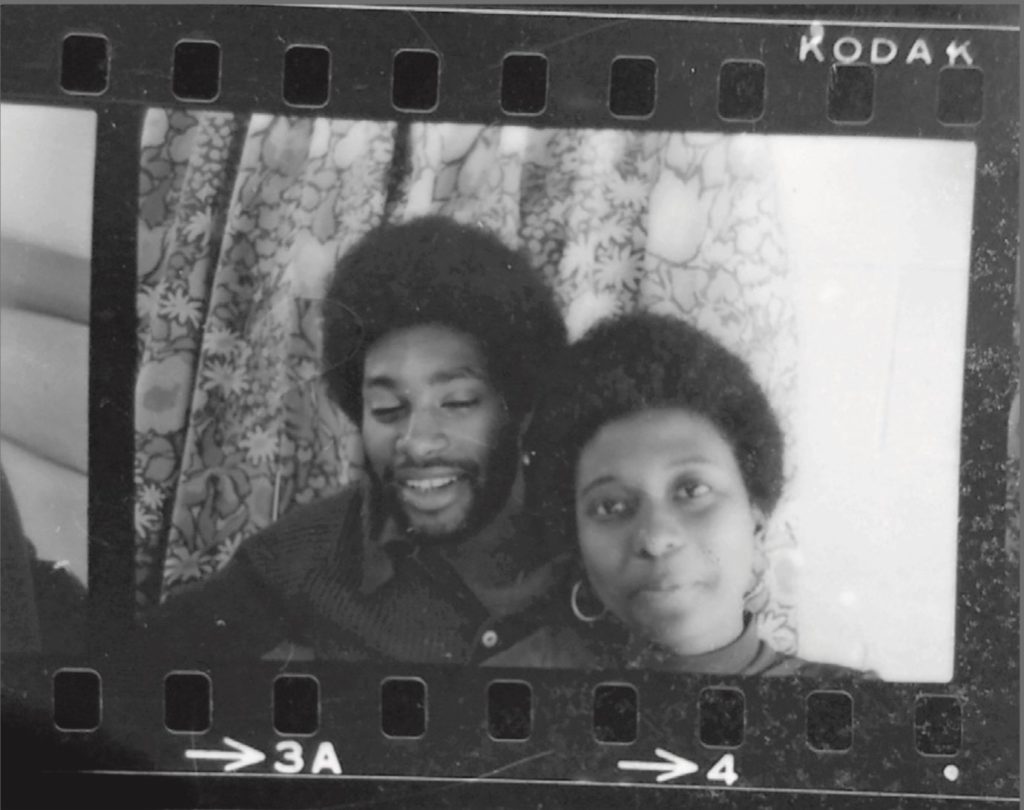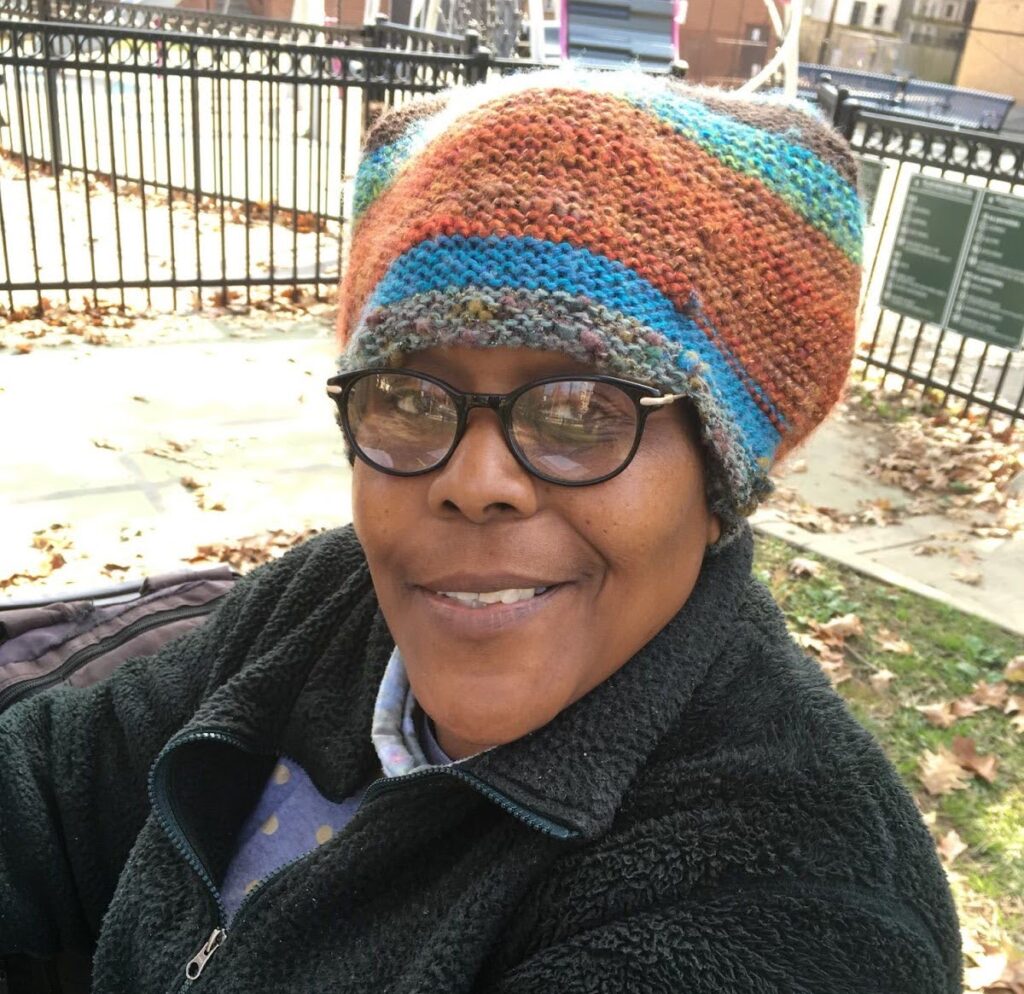My mission is to share the good news about people’s kindness towards one another, even to strangers. It has engulfed my every moment. It’s my way of showing how grateful I am for angels stepping in and performing miracles in my life. This endeavor is important to me during these times of insensitivity, meanness, and incivility in the name of partisan objectives and political expediency. I can only hope that what I write takes away some of the sting or nastiness that seems to have become the new “norm.”
One of my favorite comedies of all time is the John Candy/Steve Martin classic “Planes, Trains and Automobiles,” where in a snowstorm two strangers decide to pool their resources and collaborate to get home for the holidays, in spite of obstacles and the madness that ensues. This was my inspiration for writing this installment of Random Acts, one of the first I’ve been able to complete in the 10 months since “Valentine for Valerie” and the crippling grief that followed. So this piece is dedicated to the many readers of that installment who’ve kindly inquired how I was doing and encouraged me to write my way out of sadness.
Homeless or financially challenged from time to time, situations will arise where transportation is a major barrier to employment, goals, full participation in life, or just access to goods and services that are essentially needed to live what most consider a “normal” life. Many things we take for granted, like knowing where we’ll sleep tonight or how we’ll get somewhere we need to be.
One situation took place in 1969. I had just barely graduated from high school and had no idea what to do next. My last year in high school came to a close and many of my friends began to talk about where they were going to college. For most of us, all college meant was a chance to keep playing the sports we’d been involved in since we were toddlers. A playground was directly across the street from my boyhood home and it was the center of positive activity in our community. My dad bought our house in 1956 for $8K (worth over $700K today) and I had spent part of every day on that playground, a common baby boom experience shared by my friends and teammates. There were no safety issues, video games, hand-held devices, or cable television, only channels 4, 5, 7, and 9. We didn’t even own a color TV and we used to head up the block to grandmother’s house to watch Batman on the family’s first color TV.
A random act of kindness gave me my first trip out of D.C. alone and plane ride. In late May, after hearing many of my friends talk about where they’d play next, I quietly went to a guidance counselor whom I’d never met. They instantly blew me off as not college material and suggested I fill out 171 forms to pursue entry-level employment in the government. This was the classic “Track System” at its worst, someone telling a young person what they could or couldn’t do or aspire to be based on how they tested as a grade school student.This part of our racist past is never talked about in conversations about school desegregation but It had limited so many dreams in D.C. without them even knowing it. It was finally struck down by the federal courts with the final ruling issued by Judge John Sirica, the same judge who presided over the Watergate trials.
I got a job in the Postal Service’s parcel post division working the 3 p.m. to midnight shift in hopes of going to school during the day if given a chance. It was back-breaking work. I had never picked cotton but I could imagine this atmosphere ruled by fear, threats, and disrespect was a lot like a plantation. After a year I fell in with a disgruntled bunch and for punishment was banished to the belt, where we unloaded tractor-trailers and box cars and occasionally were asked to accompany a driver as labor when dropping off packages at substations later at night. Eventually, I was set up, charged with misconduct, and terminated. I look at these incidents differently today. They actually freed me from what would have been a miserable career going to work every day at a job I hated and was unfulfilling.
The next fall I started college at the new Federal City College where I heard from fellow students that several recruiters from northeastern and midwestern liberal arts colleges were mining the inner cities for minority students to help bring them into compliance with the new goal of achieving diversity on campus. I signed up for every opportunity to hear about possibilities in the vast world of smaller schools.
It’s because of this fluke of timing I took my first plane ride at almost 20 years old. For many students who weren’t outstanding in the classroom, HBCUs were pretty much our only options. And in ‘69, having grown up not outwardly facing racism and discrimination on a daily basis, none of us loved the thought of “going South” where most were located.
One school recruiter happened to be from Oberlin College in Ohio where fate would have it, my family spent time staying at the family home of a neighbor, Dr. D. I. Miller, who lived across the street when we moved in and was the principal of Margaret Murray Washington Vocational High School. She always kept me busy doing household chores for her and would teach me how to negotiate the pay on each job. When I got older I tried to refuse to charge her but she insisted while allowing my friends and me to raid her apple tree as long as we remembered to shut the gate so her blind dog Billie wouldn’t get out.
She was a longtime high school principal in DCPS who was childless and took an interest in my academic development. She talked about the balance between sports and books in hopes of getting me in but I never believed it could happen. I basically chalked it up to the whims of a sweet old lady, an Oberlin graduate who grew up there, who told me stories about the college and the tiny town.
And then a serendipitous thing happened. The recruiter from Oberlin was an African American male who had lived in D.C. and understood the limitations of its school system and lack of preparation for entry into an academically rigorous school like Oberlin. But because of Dr. Miller and my interest in Oberlin, he decided to try to recruit me anyway, with the extra added value of me being an athlete.
But part of my motivation for considering this wild and crazy move was that my high school sweetheart, who had broken up with me, was already in Ohio at Defiance College, a couple of hours away by Greyhound.
So after many collect calls (remember those?), a plane ticket arrived. I still catch myself thinking about that first plane ride and the fear at take off as the jet roared down the runway into the sky. I remember thinking that I’m either going to throw up or crap my pants, shaken as I looked down and saw cars and houses getting smaller looking like ants on the ground. I was scared to death. Finally, the bell rang and the flight attendants began to take orders for food and drinks in the days of a full meal. And since I had never flown before and didn’t want anyone on the plane to know I simply ordered what the guy next to me ordered, including the scotch on the rocks. I still remember that drink even though I don’t recall the meal. When we touched down in Cleveland I was all shook up as we headed to Oberlin, which was only an hour away but in a different world.
The town was the college and it was like Andy Taylor’s Mayberry. After spending that first day on campus talking with everyone from the registrar’s office to the athletic department it was decided that I would need some remedial work to gain entry and it still would be a challenge since I had forgotten a small detail. I hadn’t taken the SATs yet, I had taken the PSATs. The suggestion was a private prep school, then return the next year and reapply. But my family rejected the idea flat out and it took me years to get over the resentment, considering one of the guys who accompanied me on that trip, a graduate from a DC vocational high school, decided to take that same route, entered the next year, and became a proud successful Oberlin graduate.
I had found out from Miss Miller her home there was well over 100 years old. We had stayed there on the family trips to Ohio before and the town was always a socially-progressive community, being a hotbed of activity in the Abolitionist Movement prior to the Civil War and a sometimes base for John Brown and his followers who Miss Miller claimed to be descendants of.
The four days ended on a good note as my friend took the Greyhound in from Defiance. An Act of Kindness by Miss Miller and a Random Act by a recruiter named Lloyd Mayfield who sensed something in me allowed me to experience my first flight, first real visit to a college outside of D.C. and a chance to see someone special after 2 years apart, all at the same time. Our friendship continues today as we’re still in contact with one another.
To be continued.







